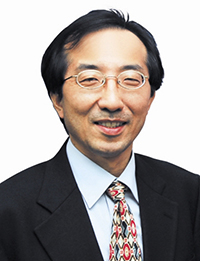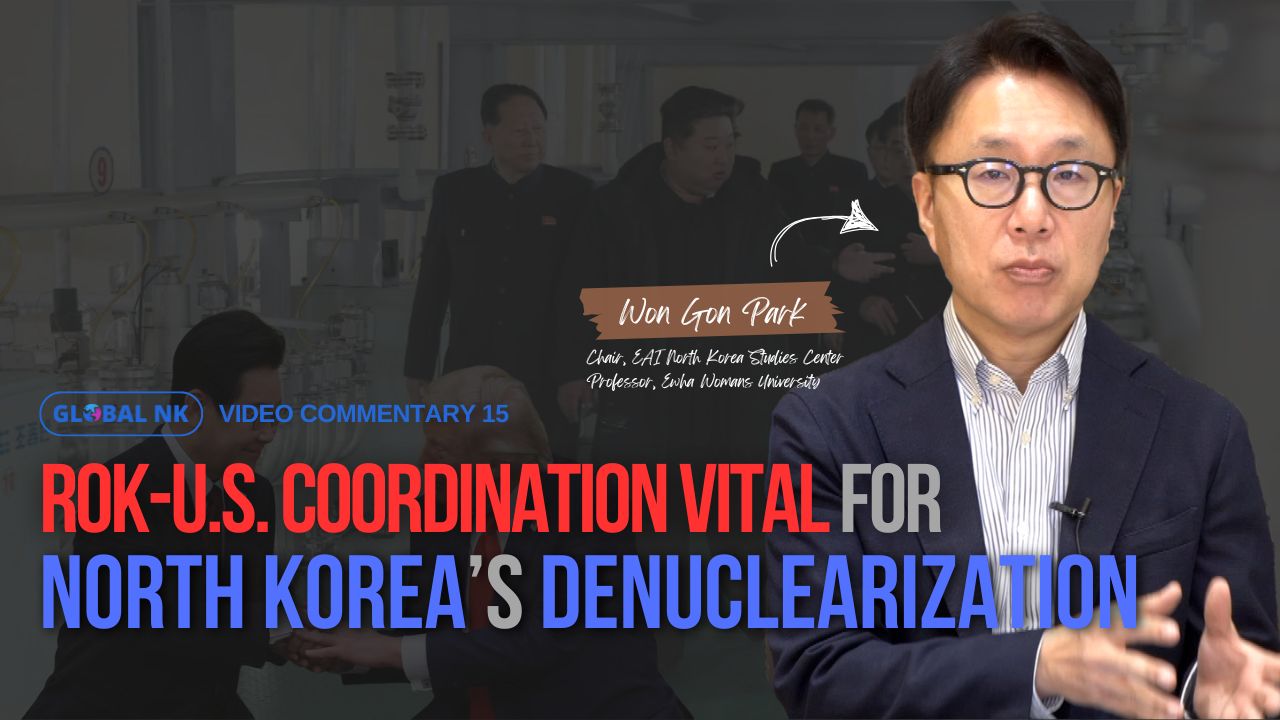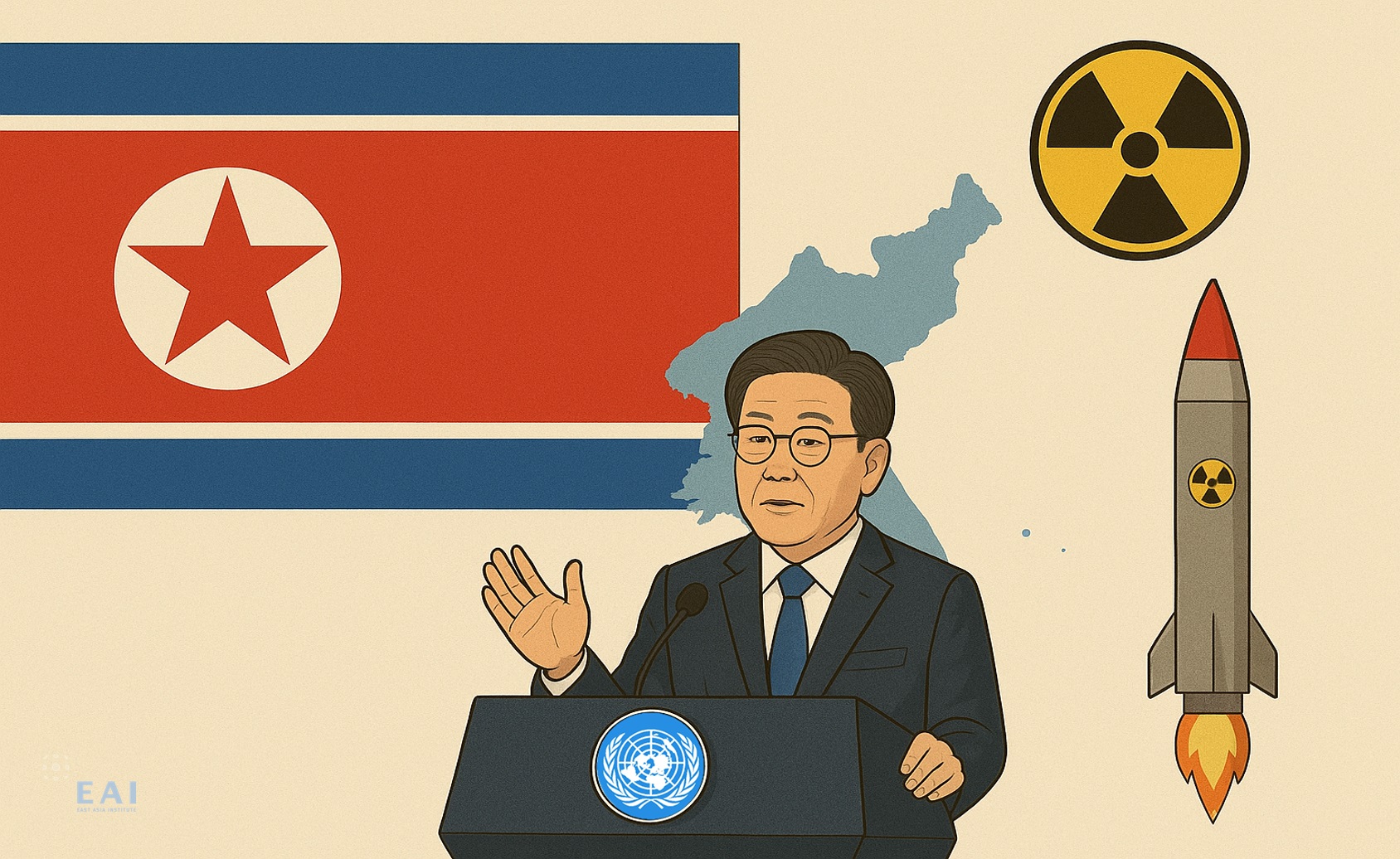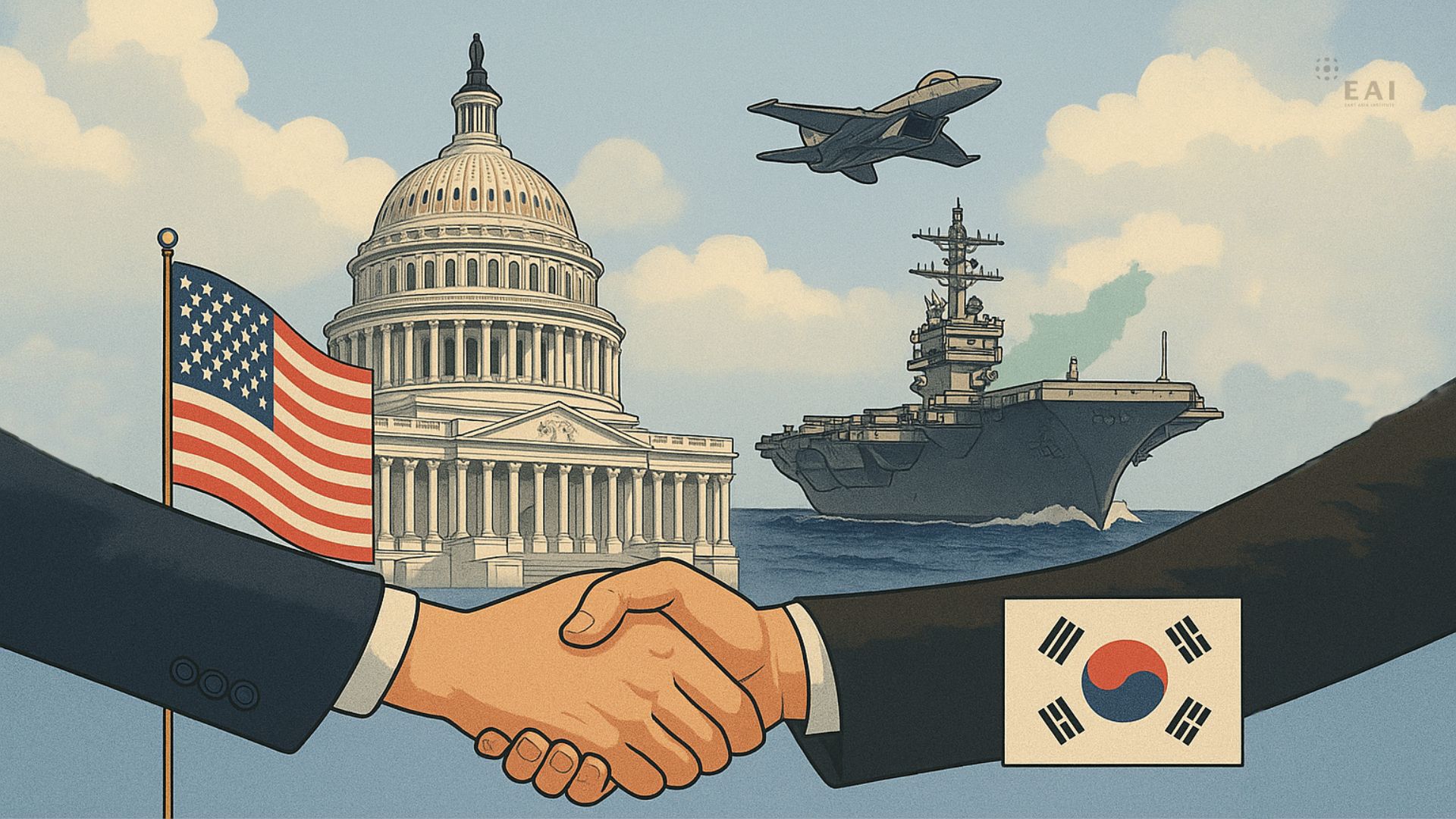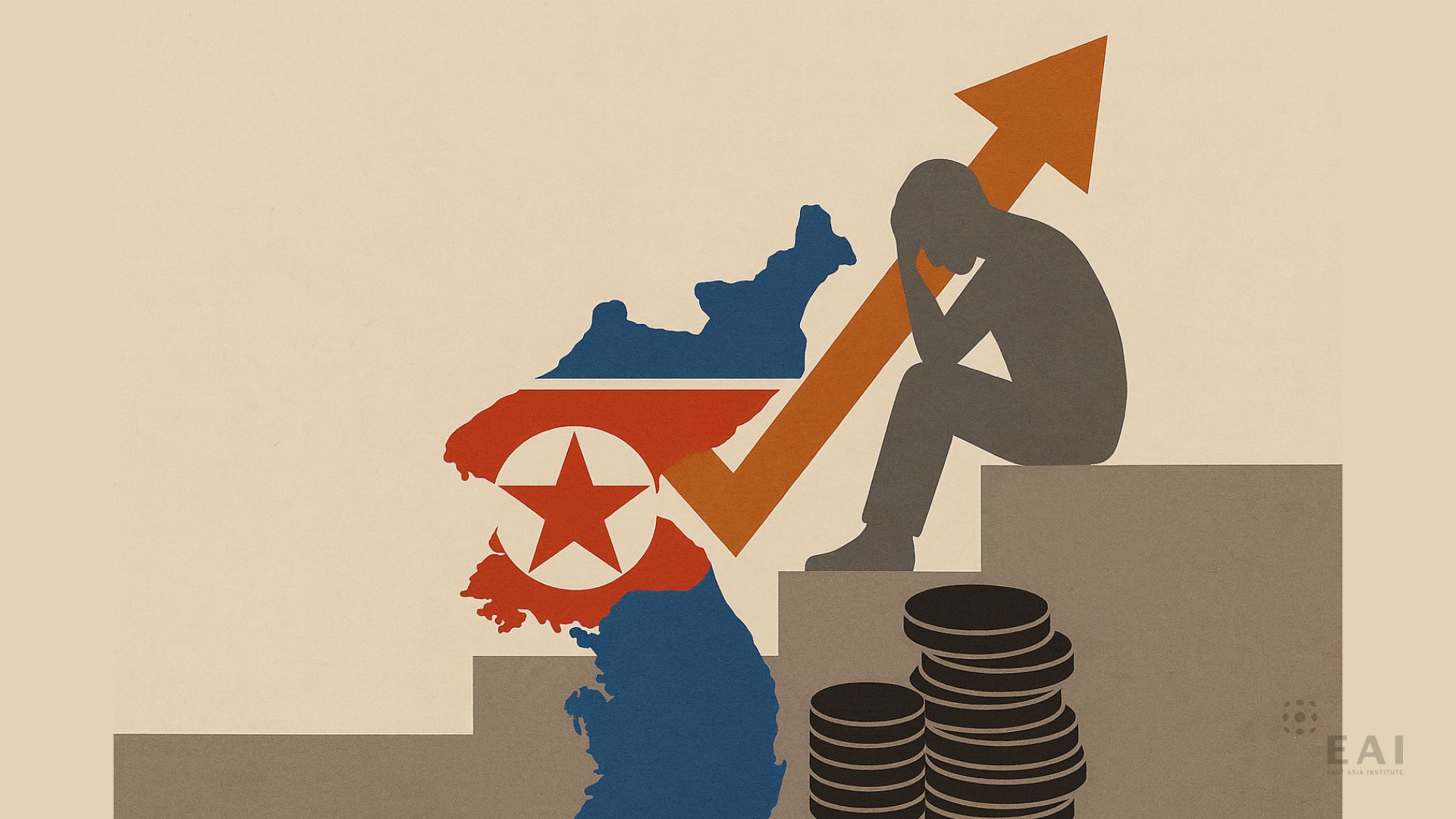Editor’s Note
Young-Ho Park, Director at the Korea Peace Foundation and an Invitation Research Fellow at the Korea Institute for National Unification, evaluates the May 2022 ROK-U.S. Summit and provides prospects for the Yoon administration’s North Korea policy. Dr. Park highlights that the summit symbolizes the progression of the ROK-U.S. into a comprehensive strategic alliance not only pertaining to the Korean peninsula, but also the Indo-Pacific region. He underscores that the summit served as an important opportunity for the Yoon administration to make amends for the shortcomings of Seoul’s past North Korea policies. In particular, the author forecasts Seoul to pursue a strategy of “peace through strength,” normalize inter-Korean relations, and cooperate with other countries to denuclearize the peninsula.
The Yoon Suk-yeol administration’s first ROK-U.S. summit was held in Seoul on May 21st. This summit advanced the 70-year-old ROK-U.S. alliance, with South Korea making it clear that it is equipped with the ability and willingness to meet U.S. needs. In this light, it is important to note that Yoon’s goal of establishing a “global pivotal state that focuses on promoting peace, freedom, and prosperity” and Biden’s goal of containing China are based on common national interests. For the Biden administration, which seeks to cooperate with allies and partners to invest in competitiveness, innovation, and democracy to successfully pursue its China strategy, South Korea remains a key ally with the necessary resources. For the Yoon administration, the ROK-U.S. alliance is an integral backbone in its pursuit for denuclearization and peace on the Korean Peninsula, building a framework for unification, and to become an influential “pivotal state,” able to fulfill its roles and responsibilities in the international society. In short, the ROK-U.S. alliance has progressed into a comprehensive strategic alliance based on the common values of liberal democracy, market economy, and human rights, now encompassing not only the military, but also the economy, commerce, science, and technology.
From this overall perspective, I would like to infer the future trajectory of the Yoon administration’s North Korea policy. First, let’s take a look at the recent trends of the North Korean nuclear issue. At the 8th Workers’ Party Congress in January last year, North Korea reaffirmed its goal of becoming a strategic nuclear state, vowed to advance its development of strategic and tactical nuclear weapons and missiles, and opened up the possibility of a preemptive nuclear strike. Towards Washington, Pyongyang asserted “the fighting principle of power for power and goodwill for goodwill” and once again demanded the withdrawal of U.S. “hostile policy.” In 2019, the regime resumed its ballistic missile tests, which were temporarily suspended. The tests have become more frequent starting this year. Although the Biden administration has maintained its strong sanctions against Pyongyang and urged it to resume dialogue and pursue denuclearization, Kim Jong-un has upheld his hardline strategy against the U.S. In a speech commemorating the 90th anniversary of the founding of the Korean People’s Army on April 25th this year, Kim Jong-un emphasized that “reliable genuine peace is guaranteed by [a] powerful defense capability that can overpower any enemy” and that North Korea “will continue to take measures for further developing the nuclear forces of our state (North Korea) at the fastest possible speed.” He went on to state that “if any forces try to violate the fundamental interests of our state (North Korea), our nuclear forces will have to decisively accomplish its unexpected second mission.” This implies that he would use nuclear weapons against South Korea, if North Korea were to fall into an internal explosion. This is manifest of his preemptive nuclear strike doctrine.
Following the failure of the Hanoi Summit in February 2019, Kim’s regime completely turned its back on the Moon administration and pursued a hardline strategy. Nonetheless, the Moon administration clung to the push for the declaration of the end of the war to the final days of its term of office. Moon’s appeasement policy, far from the reality of international political dynamics, gave the North Korean dictator the leeway to decide the direction of inter-Korean relations. Kim Jong-un implemented an aggressive policy that puts pressure on South Korea. In the final analysis, the Moon administration’s policy was exploited by North Korea and yielded no meaningful results. In an interview with CNN on May 23rd, President Yoon Suk-yeol evaluated that “this kind of approach over the past five years, has proven to be a failure.”
International cooperation under the Moon administration also proved to be ineffective. While it is noteworthy that Trump and Kim held two summits, South Korea and the U.S. had lacked a sophisticated framework for cooperation. Likewise, there was insufficient policy coordination between Moon and Biden. Notwithstanding its strategic ambiguity between the U.S. and China, Seoul showed a tendency to tilt towards China. Nonetheless, Beijing and Pyongyang strengthened their strategic cooperation. That is to say, China de facto tolerates North Korea’s possession of nuclear weapons in the name of “promoting peace and stability on the Korean Peninsula.” While Moon also attempted to cooperate with Moscow, Russia eventually built greater rapport with North Korea. As such, China and Russia’s veto against the United Nations (UN) Security Council resolutions on North Korea is reflective of their perspectives on the North Korean nuclear issue. Under Moon, ROK-Japan relations were heavily strained. Moon Jae-in’s diplomacy towards the international society to ease sanctions against North Korean fell out of step with UN Security Council resolutions and other relevant parties.
The Yoon-Biden summit is an important opportunity to make amends for the shortcomings of the past. The joint statement contains several specific measures and plans pertaining to security on the Korean Peninsula, including responses to North Korea’s nuclear and missile programs, the U.S. extended deterrence commitment to South Korea using the full range of U.S. defense capabilities, reinforcing combined defense posture, strengthening airtight ROK-U.S. coordination, support for Yoon’s vision to normalize inter-Korean relations, a full implementation of all UN Security Council resolutions and to call on North Korea to return to dialogue, strengthening international cooperation, and fortifying ROK-U.S.-Japan trilateral cooperation. On the other hand, the Panmunjom Declaration and Singapore Joint Statement, which were included in the joint statement between Moon and Biden a year ago, were left unmentioned. Instead, the statement contains the U.S. and South Korea’s will to strengthen international cooperation to condemn North Korea’s ballistic missile tests and urge Pyongyang to abandon its weapons of mass destruction (WMD) and ballistic missile programs. Furthermore, the joint statement also encompassed concerns on the human rights situation in North Korea and a vow to deliver humanitarian assistance to the vulnerable North Koreans.
The Yoon administration, like the Biden administration, opened the door to dialogue and diplomatic negotiations, but aims to pursue a strategy of “peace through strength.” In other words, Yoon’s North Korea policy is based on realism. In this regard, the administration will place efforts to strengthen its deterrence posture in response to North Korea’s development of nuclear and missile capabilities. It will prepare an elaborate plan of action to enhance its execution of extended deterrence, such as the deployment of strategic assets and normalizing ROK-U.S. joint exercises. The world’s leading countries have realized the importance of self-strengthening and are reinforcing their national defense capabilities. Only when South Korea has sufficient deterrence against North Korea, can it check Pyongyang’s arbitrary behavior and return it to negotiation table and increase the effectiveness of negotiations.
Second, the Yoon administration will develop a plan to normalize inter-Korean relations. To this end, it aims to pursue a principled approach to inter-Korean relations that combines practicality and flexibility, considering the geopolitical context and national interests. Over the years, inter-Korean relations have been altered under North Korea’s arbitrary behaviors, undergoing a series of interruptions and resumptions. Inter-Korean relations can only be sustainable if the relationship is based on mutual interests and reciprocity. Deterrence and dialogue are compatible. Dialogue should not be considered as a goal, but instead a means to improve relations. Nonetheless, the Yoon administration should be careful not to let practicality and flexibility dominate over its principles.
Third, the Yoon administration will focus on international cooperation to solve the North’s denuclearization and the North Korea issue. Washington and Seoul’s North Korea policies have a lot in common in their stance and approach. The two allies have built a high level of trust in ROK-U.S. cooperation. The joint statement by the ROK-U.S.-Japan foreign ministers issued on May 28th is manifest of the Yoon administration’s will to strengthen international cooperation. For instance, the trilateral statement reflected their regret towards China and Russia’s veto against the UN Security Council resolutions on North Korea. The united voice of the three countries has been lacking during the Moon government. China strongly opposes against closer cooperation between ROK-U.S., the ROK-U.S.-Japan, and South Korea’s participation in the Indo-Pacific Economic Framework (IPEF). However, I believe that the ROK-U.S. and ROK-U.S.-Japan cooperation based on the principles of freedom, democracy, international norms, and strategic clarity can in turn, promote China’s cooperation with South Korea.
In response to the Yoon administration’s North Korea policy, Kim Jong-un is likely to elevate tension on the peninsula, responding with nuclear and ballistic missile tests, military provocations, and continuously sever inter-Korean dialogue and relations. On top of that, it will blatantly criticize the South. At an enlarged plenary meeting of the Workers’ Party of Korea Central Committee on June 8, 2022, Kim Jong-un reiterated the fighting principle of power for power and, especially towards Seoul, declared to strengthen a “struggle against the enemy.” While all of this may raise concerns on the possibility of conflict between Yoon’s strategy of “strong deterrence and dialogue” and Kim’s approach of “strengthening its nuclear capabilities for self-defense,” resolute policies and sufficient deterrence combined will open up opportunities for resolving the North Korean nuclear issue and normalizing inter-Korean relations. Encouraging Kim Jong-un and his regime to take behavioral changes is a task that requires a long time and wise investment.■
■ PARK Young-Ho is a director at the Korea Peace Foundation and an invitation research fellow at the Korea Institute for National Unification (KINU). He worked for KINU as a senior research fellow over 25 years and was a visiting professor at Kangwon National University.
■ Typeset by Seung Yeon Lee, Research Associate
For inquiries: 02 2277 1683 (ext. 205) |slee@eai.or.kr
